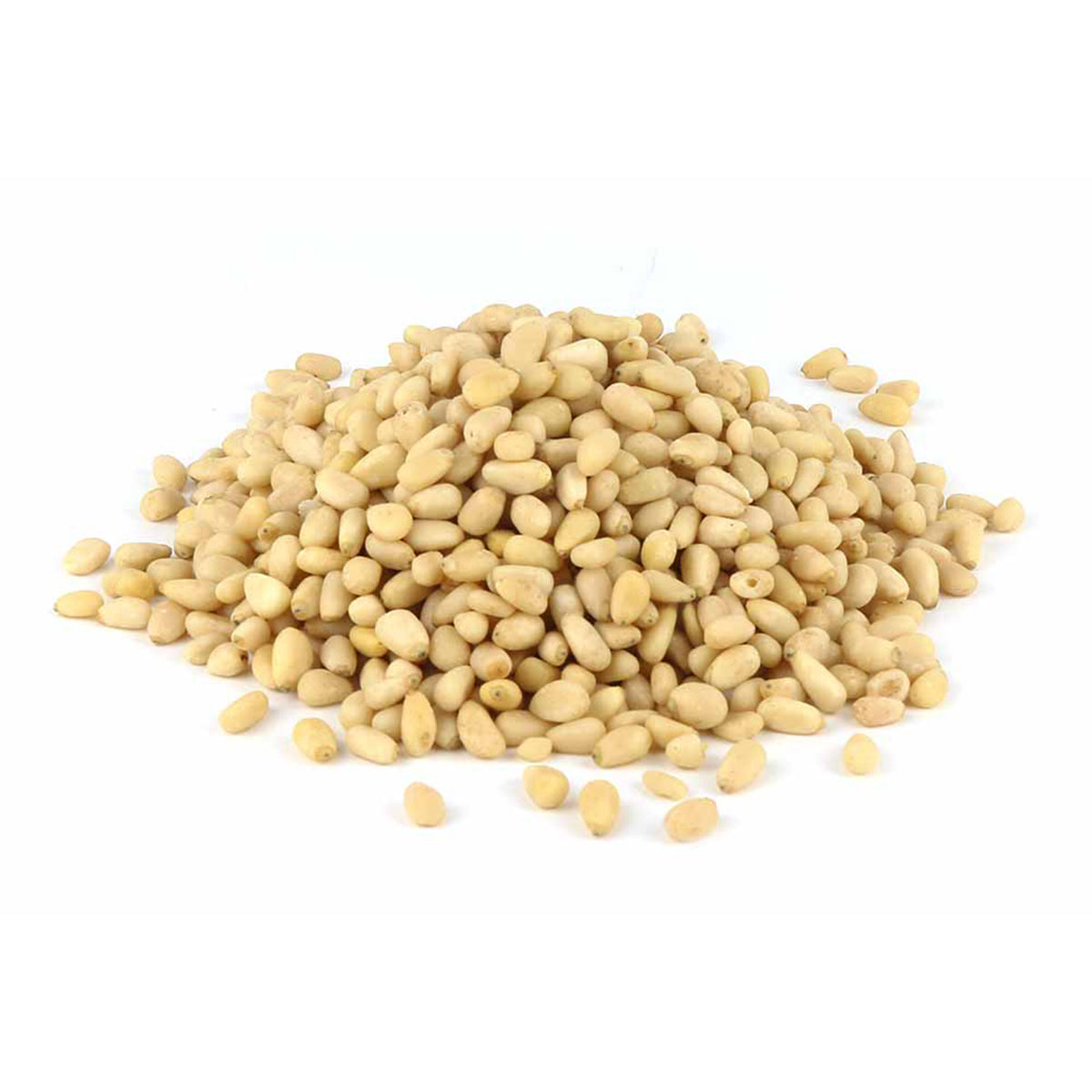
🥜 About Pine Nuts From The Whole Food Guys
At The Whole Food Guys, we think that great health starts with easy, natural foods, and pine nuts are a great case in point.
Famous for their buttery texture and slightly sweet flavor, our pine nuts are carefully sourced, gently processed, and packaged with love to preserve their natural goodness.
Blend them into your breakfast smoothie, a crisp salad, or bake your favorite treats, and these small seeds deliver a nutritional and flavor-filled punch.
We're here to ensure that each spoonful you serve is clean, wholesome, and designed for real-life nourishment.
🛒 Buy Pine Nuts Online In UK From The Whole Food Guys
We have made it more convenient than ever to purchase pine nuts from the comfort of your own home in a few clicks in the UK. Our pine nuts are hand-harvested and airtight-sealed fresh to keep their full flavor and nutrient content.
Whether you are a home chef, health food enthusiast, or simply buying healthy ingredients, our pine nuts are perfect for your kitchen.
Relish the convenience of worry-free shopping, on-time shipping, and the assurance that you're receiving the highest quality from a brand that genuinely cares about your health.
💷 Order Best Quality Pine Nuts At Affordable Prices
We hold the view that nutritious food should be affordable and not a luxury. That is why at The Whole Food Guys, we offer you excellent pine nuts at a cost that is reasonable and affordable.
No additives. No preservatives. Pure, naturally nutritious pine nuts, delivered directly to your doorstep.
So go ahead, snack clean, cook better, and fuel your body with one of nature's greatest treasures, at a price that's easy to afford.
🍽️ What Are Some Top Recipes That Are Made Using Pine Nuts?
🌿 Classic Basil Pesto
A flavorful blending of garlic, basil, parmesan, olive oil, and pine nuts—a traditional favorite!
🥗 Spinach & Pine Nut Salad
A crisp and light combination of baby spinach leaves, toasted pine nuts, cranberries, and crumbled feta cheese.
🍝 Creamy Pine Nut Pasta
Rich, velvety cream sauce with a nutty bite, gourmet comfort food.
🥖 Mediterranean Stuffed Peppers
Stuffed with grains, herbs, and toasted pine nuts for a filling, tasty meal.
🍪 Pine Nut Cookies (Pignoli)
Crunchy on the outside, chewy on the inside, these Italian cookies are a treat!
🌱 What Are The Health Benefits Of Pine Nuts?
Regarding nutrition, pine nuts benefits go beyond just protein and fibre. Here's why you should keep them in your pantry:
1) Energy Boosting Goodness
Packed with nutritious fats and magnesium, pine nuts give you sustained energy with no crash.
2) Heart-Friendly Nutrients
Rich in monounsaturated fats that support heart health and lower levels of bad cholesterol.
3) Rich in Antioxidants
Battle inflammation and oxidative stress in your body through vitamin E and polyphenols.
4) Supports Brain Function
Rich in magnesium and iron, minerals that the brain requires for mental activity and concentration.
5) Promotes Healthy Skin
The vitamin E contained in pine nuts assists in producing glowing skin and repairing cells from the inside out.
🧑🍳 What Are Some Uses Of Pine Nuts?
Pine nuts are easy and versatile to incorporate into a variety of recipes:
1) Salads & Grain Bowls
Add a nutty, crunchy texture.
2) Baking
Use in biscotti, cookies, or cakes for an upscale taste.
3) Homemade Sauces
Perfect in pesto, dips, and nut sauces.
4) Savory Stuffings
Great in rice or meat stuffing for texture.
5) Snack On the Go
Lightly roasted and seasoned for a nutritious snack.
🌟 Why Shop Pine Kernels From The Whole Food Guys?
When you buy from us, you're not just purchasing a product. You're purchasing an assurance of quality and care:
a) Responsibly Sourced
Directly from farmers who use sustainable farming methods.
b) 100% Natural & Fresh
No additives or preservatives, just 100% natural, fresh pine nuts.
c) Great Value for Money
Great quality pine nuts at prices that suit your budget.
d) UK-Wide Delivery
Quick, safe shipping wherever you happen to be.
e) Expert Support
Have questions? Our customer-first staff is here to help you.
💡 Want to learn more about healthy nuts? Check out our blog: 7 Healthiest Nuts You Can Eat to discover more nutty goodness to incorporate into your diet.
FAQ
1) What Are Pine Nuts?
Pine nuts are edible seeds from certain pine trees. Creamy in texture and bursting with flavor, they're widely used in Mediterranean and Middle Eastern cuisine.
2) How To Cook Pine Kernels?
Pine nuts can be toasted lightly in a dry pan until golden brown. They can be added to salads, sauces, baked goods, or consumed raw.
3) Are Pine Nuts Good For Hair And Skin?
Yes! Pine nuts are beneficial to skin health and can result in shinier, healthier hair through their Vitamin E and antioxidant benefits.
4) Where can we purchase Pine Nuts online within the UK?
You can receive fresh, highest-quality pine nuts at your door throughout the UK by purchasing online from The Whole Food Guys.
Recently Viewed
People Also Bought
Here’s some of our most similar products people are buying. Click to discover trending style.

